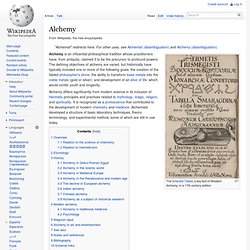

DELPHI: Sacred Entryways - Doors, Hinges & Gates. To ancient Greeks doors were considered sacred and surrounded with superstition.

So much so that doors and the comprising parts had their own deities. The god of the door was Janus, of the lintel-Limentinus. Hinges were regarded by Cardea, and the other parts, such as the jamb and threshold, were left to the safety of Forculus (Donaldson 3). Materials for the building of doors were carefully selected and of the highest quality, often wood and marble to match the material of the temple itself. More costly materials such as gold and ivory were sometimes added to make the doors more costly and brilliant (Donaldson 7). Temple doors had many sacred traditions surrounding them. Flowers and laurel were strung over doorways during festival times. Temple doors that we find today are of marble or bronze, however, wood was a more commonly used material (Smith 626).
A hinge or “cardo” could be made in a variety of materials as well (Smith 241). Ancient Greece and modern mysticism, The Book of Creative Wisdom. DELPHI: The Oracle at Delphi. The Oracle at Delphi The oracle at Delphi is a figure of great historical importance that was, and still is, shrouded in mystery.

She spoke for the god Apollo and answered questions for the Greeks and foreign inquirers about colonization, religion, and power. By her statements Delphi was made a wealthy and powerful city-state. The oracle was at the height of power around 1600 B.C. when Greece was colonizing the Mediterranean and Black Seas (Hale), but was stationed in Delphi from 1400 B.C. to 381 A.D. (Roach). The Delphic Orcle. The history of an oracle at Delphi existed long before Apollo came there. According to myth there were five temples to Apollo, only two of the five exist in historic record. Inquiries could only be made of Apollo once a year on the seventh day of the Greek month of Bysios-Apollo’s birthday. Often the Pythia was asked about colonization. Before the Pythia could be questioned she had to ritually prepare herself. Any type of woman could be chosen to be an oracle.
Gaia (mythology) The Greek word γαῖα (transliterated as gaia) is a collateral form of γῆ[4] (gē, Doric γᾶ ga and probably δᾶ da)[5] meaning Earth,[6] a word of uncertain origin.[7] R.
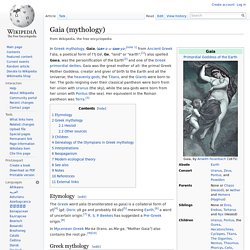
S. P. Beekes has suggested a Pre-Greek origin.[8] In Mycenean Greek Ma-ka (trans. as Ma-ga, "Mother Gaia") also contains the root ga-.[9][10] According to Hesiod, Gaia conceived further offspring with Uranus, first the giant one-eyed Cyclopes: Brontes ("Thunder"), Steropes ("Lightning") and Arges ("Bright");[16] then the Hecatonchires: Cottus, Briareos and Gyges, each with a hundred arms and fifty heads.[17] As each of the Cyclopes and Hecatonchires were born, Uranus hid them in a secret place within Gaia, causing her great pain. Because Cronus had learned from Gaia and Uranus, that he was destined to be overthrown by his own child, Cronus swallowed each of the children born to him by his Titan sister Rhea.
With Gaia's advice[21] Zeus defeated the Titans. In classical art Gaia was represented in one of two ways. Uranus (mythology) Aether (mythology) In Greek mythology, Aether or Aither (Æthere, Ancient Greek: Αἰθήρ, pronounced [aitʰɛ̌ːr]), also known as Akmon or Acmon in Latin (possibly from the same route as "Acme") is one of the primordial deities, the first-born elementals.
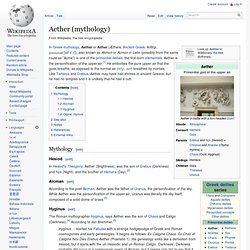
Aether is the personification of the upper air.[1] He embodies the pure upper air that the gods breathe, as opposed to the normal air (ἀήρ, aer) breathed by mortals. Like Tartarus and Erebus, Aether may have had shrines in ancient Greece, but he had no temples and it is unlikely that he had a cult. Hyginus ... started his Fabulae with a strange hodgepodge of Greek and Roman cosmogonies and early genealogies. It begins as follows: Ex Caligine Chaos. Ex Chao et Caligine Nox Dies Erebus Aether (Praefatio 1).
Chapter I: The Knowledge Of Self. Sacred Texts Islam Index Previous Next.
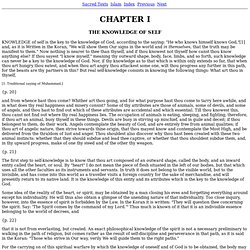
Snake oil. Clark Stanley's Snake Oil Snake oil is an expression that originally referred to fraudulent health products or unproven medicine but has come to refer to any product with questionable or unverifiable quality or benefit.

By extension, a snake oil salesman is someone who knowingly sells fraudulent goods or who is himself or herself a fraud, quack, charlatan, and the like. Two main hypotheses for the origin of the term are as follows: The more common theory is that the name originated in the Western regions of the United States and is derived from a topical preparation made from the Chinese Water Snake (Enhydris chinensis) used by Chinese laborers to treat joint pain. The preparation was promoted in North America by travelling salesmen who often used accomplices in the audience to proclaim the benefits of the preparation. [citation needed] One source, Dr. History[edit] From cure-all to quackery[edit] The composition of snake oil medicines varies markedly among products. Popular culture[edit] Elemental. History[edit] The elements of earth, water, air, and fire, were classed as the fundamental building blocks of nature.
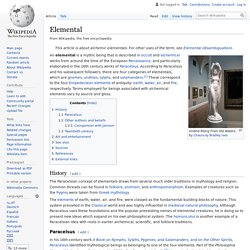
This system prevailed in the Classical world and was highly influential in Medieval natural philosophy. Although Paracelsus uses these foundations and the popular preexisting names of elemental creatures, he is doing so in order to present new ideas which expand on his own philosophical system. The homunculus is another example of a Paracelsian idea with roots in earlier alchemical, scientific, and folklore traditions.
Paracelsus[edit] In his 16th century alchemical work Liber de Nymphis, sylphis, pygmaeis et salamandris et de caeteris spiritibus, Paracelsus identified mythological beings as belonging to one of the four elements. Alchemy. The Emerald Tablet, a key text of Western Alchemy, in a 17th-century edition Alchemy is an influential philosophical tradition whose practitioners have, from antiquity, claimed it to be the precursor to profound powers.
